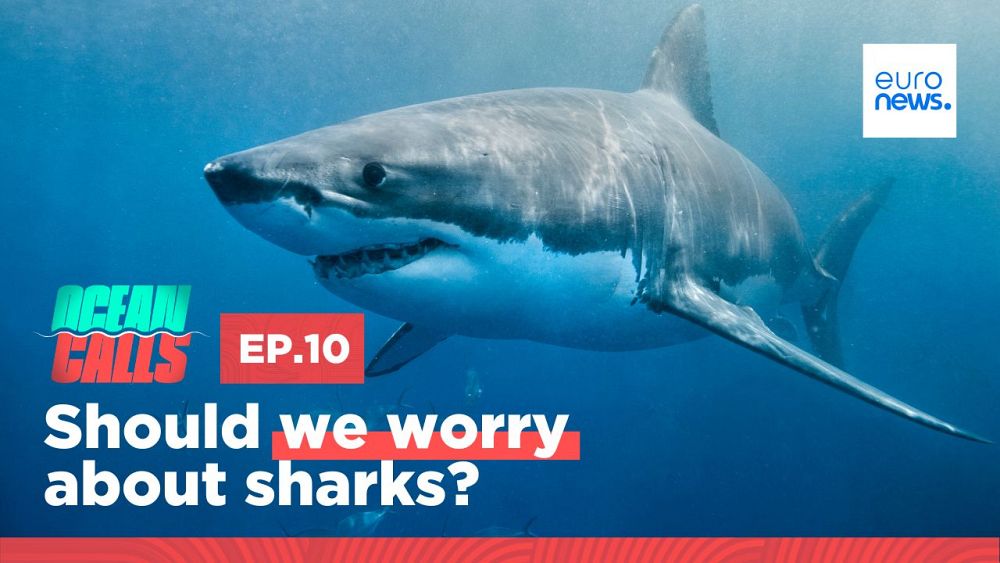
“We’ve already lost just over the last 50 years more than 70% in biomass, [which includes] an abundance of pelagic sharks in the high seas”, warned Dr Iris Ziegler from the conservation organisation Sharkproject in this episode of Ocean Calls.
Overfishing and high demands for pricey shark fins, she says, are the main threats to these top marine predators. According to another NGO, the Shark Trust, these factors dangerously impact 391 shark species.
“If this doesn’t stop immediately, we will lose these shark stocks. We will lose the sharks forever”, Ziegler stressed.
As top predators sharks keep marine ecosystems in balance by hunting down smaller carnivores. They’re crucial to the health of our oceans.
“Look at [the] Serengeti. If we kill all the lions, then all the antelopes would have a happy party, but only for a while, because then they would eat up all the grass. And what’s left behind is only desert,” argued Ziegler.
Are shark stocks managed?
In some EU countries, restaurants don’t hesitate to put shark meat on the menu.The fishing industry insists that livelihoods of coastal communities in countries like Spain or Portugal depend on shark fishing and trade.
According to Europêche, a representative body for the fishing industry in the European Union. There are about 200 fishing vessels in Europe targeting blue sharks. 170 of them are Spanish and the rest, Portuguese.
“In Spain, in Italy, in Greece, but also in America and several other countries there is a good market (for shark meat)”, argued the second guest of our episode, Javier Garat Pérez, the president of Europêche.
“It’s part of our tradition, our culture, our gastronomy,” he says.
Pérez warned against putting all shark species in the same basket, insisting that European fleets only target blue sharks, which are not overfished. Targeting endangered species, like thresher or hammerhead sharks, is banned.
“We have shown as an industry that we are responsible”, he insisted.
Ziegler warned that despite efforts made by the fishing industry, bycatch still represents an enormous challenge for the survival of sharks.
“The fishing gear you use is so unselective it will hook any shark which then die like turtles and seabirds”, she argued.
Should we change our way of thinking about sharks and start worrying about their wellbeing a bit more than we do? We asked Dr Iris Ziegler from the conservation organisation Sharkproject and Javier Garat Pérez, the president of Europêche. Listen to this episode to find out.






And at the end of the conversation, you will hear from the Australian diver and filmmaker Madison Stewart about their favourite ocean animal – or favourite ocean experience. Which one will it be?
The Ocean Calls podcast is made possible by the European Commission’s Directorate-General for Maritime Affairs and Fisheries.


